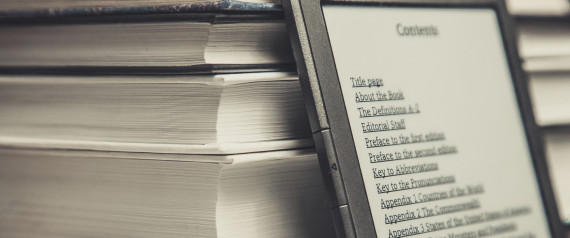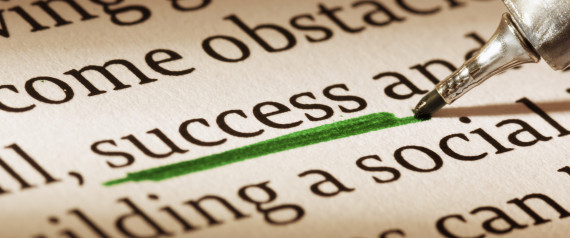
When we think of “hacks,” many of us think of tricks to make a task quicker and easier than we’d previously believed possible. And of course, people have been trying to “hack” reading for decades, whether through speed-reading courses or apps or … well, Cliff’s Notes. The temptation of speed-reading is strong; the sheer number of books to read in the world is daunting to even the most dedicated reader. If only we could read quickly and painlessly, maybe we could make a real dent in the world’s literature in our brief lifetimes!
Reading, however, isn’t like chilling a drink or opening plastic packaging: The experience itself has just as much to offer as the end result. Hacking the reading experience by speeding it up seems to miss the value of the reading process. Plus, speed-reading may not work as well as its proponents claim, especially for more complex texts, as faster reading tends to work out to worse comprehension.
That doesn’t mean we can’t use relatively simple tricks and techniques to improve our reading. These easy reading hacks may not allow you to breeze through books and articles at the speed of light, but they should help you concentrate better, process what you’re reading more effectively, and get more out of each book.
Here are 7 basic hacks to turn your reading up to 11:
Don’t read in bed
Okay, we all love reading in bed. It’s cozy, it’s relaxing, it feels like someone is dreaming a beautiful dream for you. And then, two minutes later, you fall asleep, only to wake up four hours later with a crumpled book on your face, confused. If you want to get some actual reading done, you have to do this the right way: in an at least somewhat vertical position. Stand at your standing desk. Sit on your exercise ball. Sit (don’t lie!) on your couch or armchair or at your kitchen table. Read with your mind clear and alert, in a place and physical position you associate with mental activity, not drowsiness.
Read alone
Reading isn't a group activity, and it certainly isn't one facilitated by Gchat or Twitter. Set aside time to read alone, without distractions. If possible, read in a different room from your family or roommates, where there's no TV blaring or conversation pulling you in. Definitely switch off your devices -- checking for new texts, Facebook notifications, emails, Twitter mentions, Gchats, and Instagram likes is a sure path to distracted, ineffective reading. We're so used to constant connectedness that after a couple pages it seems natural to check in ("I've been offline for five minutes, I bet that tweet's gotten some RTs by now!"), but this habitual checking in pulls our attention away from the page and interrupts the flow of our thoughts.
Read in print if possible
Sorry e-reader fans -- several studies have suggested that reading in print leads to superior comprehension and retention compared to reading on a screen. This suggests that trickier materials or books you hope to read more carefully should be read on paper, while the Kindle is reserved for fare you intend to skim or read purely for pleasure.
Underline
Books are precious, sacred objects. Nothing depresses us more than opening a used book we’ve purchased and seeing it covered with scribbled notes like, “LOL!” and “huh?” and “the tree symbolizes life” (no kidding?). However, you must leave this reverent attitude behind, as Tim Parks recently exhorted readers to do in the pages of The New York Review of Books, if you want to become a master reader. Start simply, with underlining. Hold a pen, or, if you’re still squeamish, a pencil as you read. Underscore lovely phrases, confusing sentences, or particularly memorable passages. By physically marking them, you’re forcing yourself to linger over them, taking extra mental note of the words and possibly giving yourself more opportunity to ponder their meaning. Plus, you may open the book years later and find it ready-annotated with your first reactions.
Take notes
Don’t stop at underlining! It’s time to add some “LOL”s and “huh?”s to your own books. Reading is, on a basic level, a process of consuming another person’s thoughts and arguments, but on a more meaningful level it’s an active collaboration between the reader and the writer. To grasp the author’s full message -- and perhaps even to reach new conclusions that weren’t even intended by the author -- you shouldn’t just be passively taking in the words, but thinking them over, analyzing how different parts of the work hold together, and interrogating the book closely. Taking notes, either in the book, on Post-Its, or in a separate notebook, ensures you’re not only engaged in this active conversation with the book, but that you have a record of it you can review later.
Reread for clarity
Rereading won’t help you get through a book faster, it’s true. In fact, the speed-reading app Spritz aims to streamline the process in large part by cutting down on the instinctive rereading we all do, most likely in order to solidify our understanding. Being willing to sacrifice speed for thoroughness is an easy way to orient ourselves in the text and ensure we haven’t skimmed over any important details.
Read aloud, or mouth along
We’ll close with the hack that has the highest probability of making your fellow public transit users find another seat. It feels, at best, irredeemably nerdy to read aloud for your own benefit, rather than for a classroom of adorable pre-schoolers or your ailing great-aunt. Nonetheless, reading aloud deserves your consideration; it’s simple and possibly beneficial. A recent study suggests that reading aloud or at least mouthing along increases focus and concentration, perhaps because the physical engagement with the text prevents skimming or mind-wandering. If you wish to improve your memory of what you're reading, it may be best to only mouth or read aloud the more important passages: Another study indicated that mouthing or speaking certain words aloud improved retention of those words compared to others read silently. Since this effect is believed to arise from the mouthed or spoken words being made distinct and memorable compared to the silently read words, reserving it for selected passages is best.

